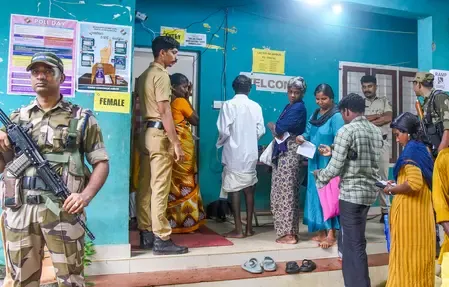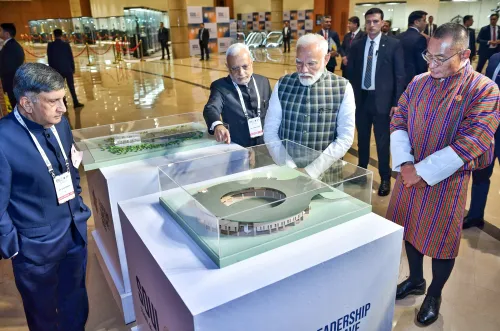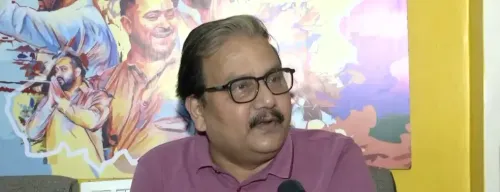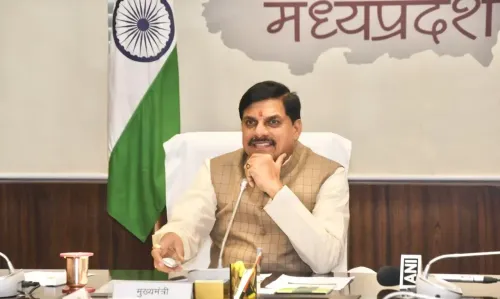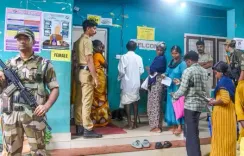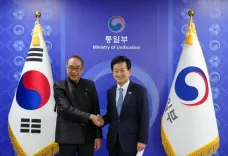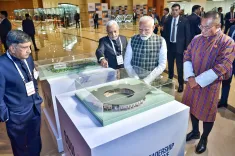Why Did Rahul Gandhi Defy a Ban to Hold 'Shiksha Nyay Samvad' at Ambedkar Hostel in Darbhanga?
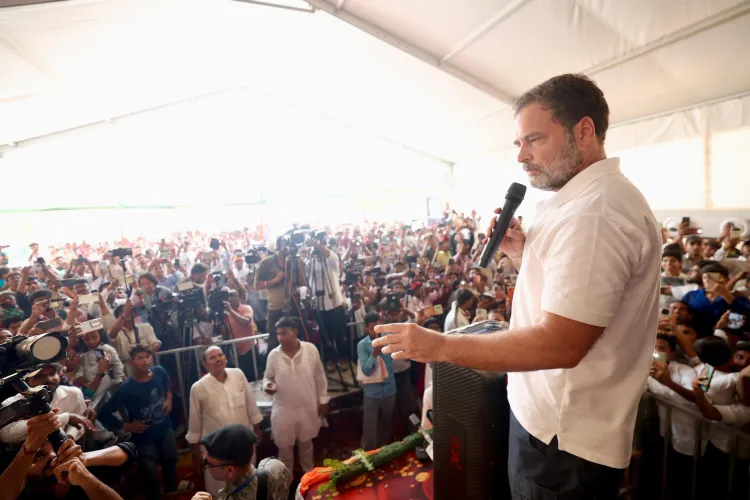
Synopsis
Key Takeaways
- Rahul Gandhi's defiance of the ban highlights a critical political stance.
- The event addresses pressing educational issues for marginalized students.
- Political clashes can often spotlight vital social justice concerns.
- The importance of dialogue in a democratic society is emphasized.
- Advocating for a fair caste-based census is crucial for equitable representation.
Patna, May 15 (NationPress) The Leader of the Opposition (LoP) in Lok Sabha Rahul Gandhi visited Darbhanga on Thursday, leading to a political clash after local authorities refused permission for the Shiksha Nyay Samvad at the Ambedkar Welfare Hostel.
In defiance of Section 163 of the BNSS (previously Section 144 CrPC), which bans public gatherings, Rahul Gandhi made a nearly one-kilometer walk to the hostel, flanked by numerous supporters and party members.
Upon arrival, he addressed a large assembly of students, sparking significant reactions and igniting a political uproar both online and offline.
This initiative was part of a wider campaign aimed at bringing attention to pressing issues related to education, reservations, scholarships, and migration affecting Dalit, Mahadalit, backward, and minority students in Bihar.
The Congress aimed to conduct this dialogue at the Ambedkar Hostel in Mogalpura, a site of great significance for marginalized communities.
However, the Darbhanga administration denied the request, citing security and administrative concerns.
District Magistrate Rajiv Roshan suggested the Town Hall as an alternative venue, stating: “No political program can take place at the hostel under Section 163. They can use the Town Hall instead.”
After his convoy was halted near Karpoori Chowk, Rahul Gandhi exited his vehicle and proceeded on foot towards the hostel.
During the walk, his supporters chanted slogans against the JD(U)-BJP government, accusing it of repressing student voices.
Despite several attempts by police to obstruct the march, Rahul Gandhi continued and ultimately reached the hostel, where hundreds of students and supporters had already assembled.
A makeshift stage had been set up in preparation for his arrival.
“The double-engine government fears the voices of Dalit and backward students. They are attempting to suppress education and social justice. Their efforts to obstruct me failed. I am here at the hostel, and they will not stop the reservation,” Rahul Gandhi proclaimed during his speech.
He demanded a fair caste-based census similar to what Telangana implemented, followed by the execution of its recommendations regarding reservations.
Additionally, he reaffirmed the Congress's commitment to free education from KG to PG, timely scholarships, and merit-based job recruitment.
Abhay Dubey, the Congress national media convenor, labeled the action a “clear attempt to stifle democratic dialogue” and accused the District Welfare Officer of revoking permission without just cause.
“This denial is not merely a permission issue; it’s an infringement on the rights of Dalit students and a manifestation of authoritarian governance,” Dubey stated.
After the event, Rahul Gandhi departed for Patna, where he plans to watch the film Phule, focusing on social reformers Jyotiba Phule and Savitribai Phule, thus further emphasizing his campaign’s dedication to social justice and equality.

